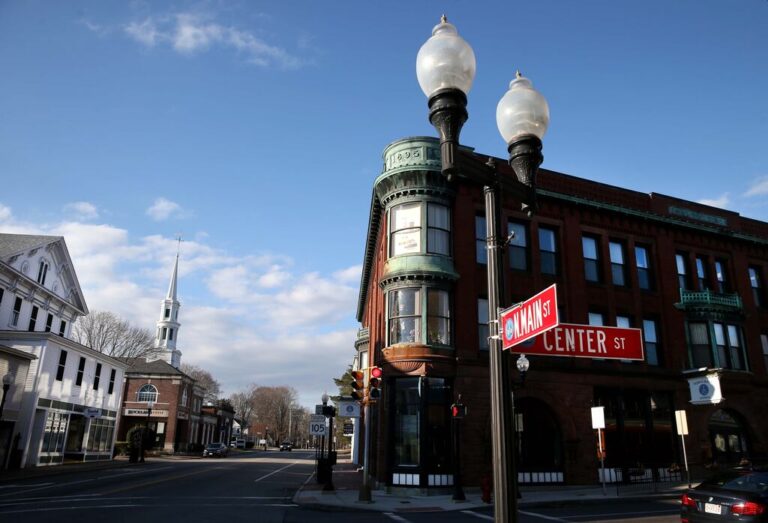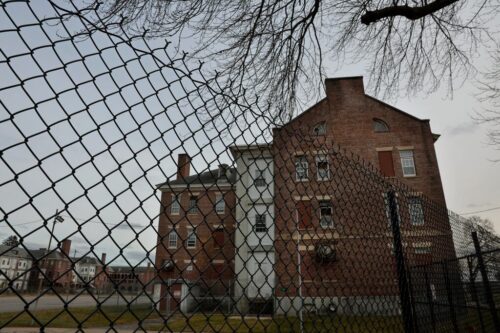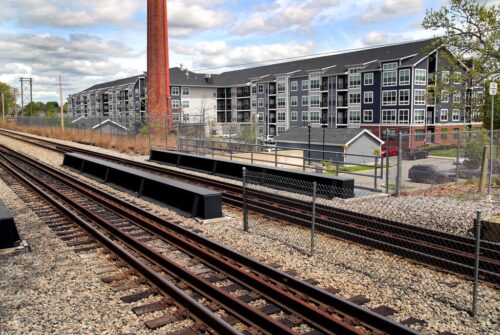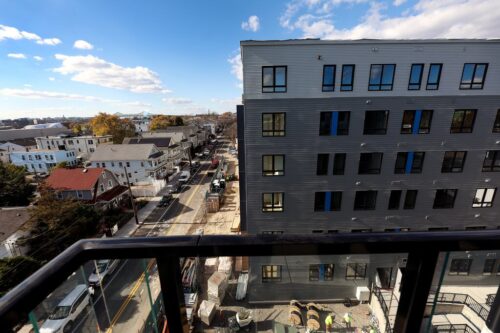The town of Middleborough sued Governor Maura Healey and the state housing office Friday, seeking an exemption from the controversial MBTA Communities Act, which requires cities and towns served by the T to make it easier to build multifamily housing within their borders.
The lawsuit asks for a waiver from the law’s zoning requirements under a recent opinion from State Auditor Diana DiZoglio, who called the law an “unfunded mandate” because, she said, the Legislature did not designate adequate funds for its implementation.
More controversy erupts after state auditor says Mass. housing law is an ‘unfunded mandate’
Middleborough, the town said in the lawsuit, has already built housing near its commuter rail station in recent years, and should not be forced to make room for more. Adhering to the law’s requirements would be a “significant expense” because the town does not have the infrastructure to accommodate more development, it said. Lawyers for the town added that the state has gone too far in punishing towns it deems noncompliant, carrying out a “campaign of threats, intimidation, and coercion.”
Middleborough, a town of 24,000 about 30 miles south of Boston, has been at odds with the state over MBTA Communities for years. Its Select Board in 2022 voted to ignore the law’s requirements, making it the first town to take an official stand against the law. Last year, Town Meeting there overwhelmingly voted down a plan to comply, and the Select Board again decided this year against submitting an action plan for compliance under an extended state deadline.
The town wrote to DiZoglio’s office last year requesting her to weigh in on the law, and when Middleborough officials received her opinion last week calling it an unfunded mandate, they moved quickly to prepare a lawsuit.
For the Healey administration, this is yet another roadblock for a law that it inherited from the Legislature but has become central to its housing strategy.
The administration set a goal in February of building 222,000 new homes by 2035 in order to head off the housing shortage, which is quickly warping the economic reality of everyday residents. The state is well behind the pace of construction needed to meet that goal, and officials see MBTA Communities — Massachusetts’ most consequential new housing law in decades — as key to course correcting. Most of the state’s housing production over the last several decades has happened in Boston and a few neighboring communities. The law is designed to stimulate housing production in the suburbs and towns in Eastern Massachusetts that have long shut out new development.
222,000 new homes must be built over the next decade to fix housing shortage, state says
But towns have not taken kindly to the law. Some see it as an affront on Massachusetts’ tradition of local government decisions over land-use rules, and many do not want to encourage the production of more homes, particularly apartment buildings.
The law requires 177 cities and towns with access to the T create zoning districts that allow for multifamily housing, but it does not mandate building.
Attorney General Andrea Campbell sued the town of Milton last year for failing to meet the law’s requirements, and the Supreme Judicial Court upheld the law, though it also ruled that the state must put the guidelines that shape its implementation through a formal regulatory process.
Campbell, in a statement Friday, said her office will defend the law.
“I am grateful to the majority of communities that understand the importance of responsible zoning, and my office and I intend to successfully defend this law in court,” Campbell said. “It is regrettable that the Auditor’s incorrect legal assessment has spurred challenges to a law meant to address our housing crisis.”
Middleborough officials say the town created a multifamily zoning district in 2021 that has since yielded 174 multifamily units, a quarter of which are set at affordable rents. And over the last 20 years, the town has seen 881 housing units built within a mile of its commuter rail station.
How will the state’s historic rezoning mandate affect your community?
It argues that should be enough to satisfy the requirements of MBTA Communities. But under the law, the town has to create zoning that makes room for at least 1,471 units. The zoning the town passed in 2021 only allows for 549 units.
Lawyers for the town said it has been unfairly punished for not complying with the law’s requirements “through the withholding and/or recission of more than $6.5 million in funding for school programs, infrastructure projects, and other initiatives that are necessary to provide the very housing the Act was enacted to create.” Those funding programs are discretionary, and the state has, in some cases, tied towns’ chances of approval to their MBTA Communities compliance status.
“This isn’t something new in Middleboro. We recognize the need for more housing near public transit as a function of responsible town planning,” Middleborough Town Manager James McGrail said Friday. “We’ve done our part. We are not anti-housing. The fact that we’re even having to go to court to sort this out is crazy.”
The latest consequence for rejecting a state housing law: Firefighter equipment grantsNeedham voters just rejected the town’s state-mandated housing plan. Now what?SJC supports controversial housing law, but says details must be rewritten




Comment count: